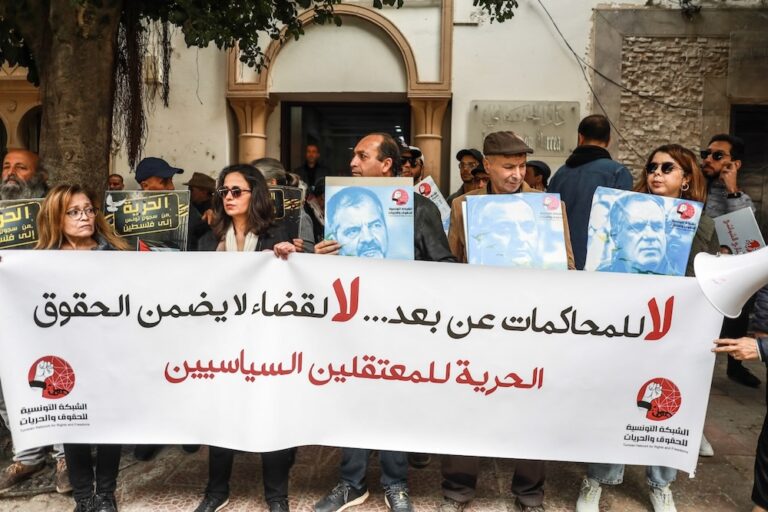On the eve of the International Association of Judges (IAJ) Congress, the IFEX-TMG reiterates its deep concern about the continuous persecution of independent judges.
(IFEX-TMG) – 2 November 2010 – On the eve of the International Association of Judges (IAJ) Congress in Dakar, Senegal, the International Freedom of Expression Exchange Tunisia Monitoring Group (IFEX-TMG), a global coalition of 20 IFEX members, reiterates its deep concern about the continuous persecution of independent judges in Tunisia and its resulting impact on freedom of expression.
IFEX-TMG wrote in September to the IAJ, an international and professional organisation whose main aim is to “safeguard the independence of the judiciary”, to share its alarming findings concerning the unabated harassment of the democratically elected board members of the Association of Tunisian Judges (AMT) since their eviction in 2005. (See: http://ifex.org/tunisia/2010/09/17/judges_persecuted/ )
“These judges have been targeted for their support for the independence of the judiciary and their opposition to government control over Tunisia’s Superior Council of Magistrates,” said IFEX-TMG Chair Rohan Jayasekera of Index on Censorship.
The Superior Council of Magistrates is in charge of appointing, promoting and disciplining judges, but is managed by the Ministry of Justice and is headed by President Zine El Abidine Ben Ali, who appoints the majority of its members.
The state started exerting more control after the AMT 2004 Conference overwhelmingly passed a resolution calling for the amendment of their statutes and the restructuring of the Superior Council of Magistrates to give it more independence and protection from intimidation.
Since its second fact-finding mission to Tunisia in September 2005, IFEX-TMG has documented various forms of persecution of independent judges and an increasing use of the judiciary to persecute critical journalists and human rights activists. The IFEX-TMG believes that an independent judiciary free from state influence is essential to the preservation of free expression.
The findings of its latest and sixth fact-finding mission are documented in a report released in June in Beirut, “Behind the Façade: How a Politicised Judiciary and Administrative Sanctions Undermine Tunisian Human Rights”. (See: http://ifex.org/tunisia/2010/06/18/ifextmgmissionreport_june2010.pdf )
“Many magistrates do not like to speak out about the problems they face while doing their job. Not because they do not believe in the independence of the judiciary. It is because what we are undergoing has frightened everybody. No magistrate likes to go through the perils we are facing,” said one of the currently persecuted judges.
The current government-backed board of the AMT has turned a blind eye over the past five years to persecution of independent judges, including relocation without their consent, denial of promotion, salary cuts without explanation, restriction of their freedom of movement and even assault.
The AMT’s National Council even issued a resolution on 18 October that thanked President Ben Ali for his “regular support for the judges’ material and moral interests” and attacked Amnesty International for its July report on the high price currently paid by independent Tunisian judges and human rights defenders.
“We hope that the Dakar Congress would provide an opportunity for the International Association of Judges to initiate action that would soon end the persecution of independent judges and help open a new era where the judiciary is no longer used as a government tool to stifle freedom of expression and association,” concluded Amadou Kanoute of ARTICLE 19’s Senegal office, who led the IFEX-TMG mission to Tunisia this past spring.
Judges associations from around the world have pledged their support for independent judges in Tunisia in advance of the IAJ Congress in Dakar on 6- 11 November.


